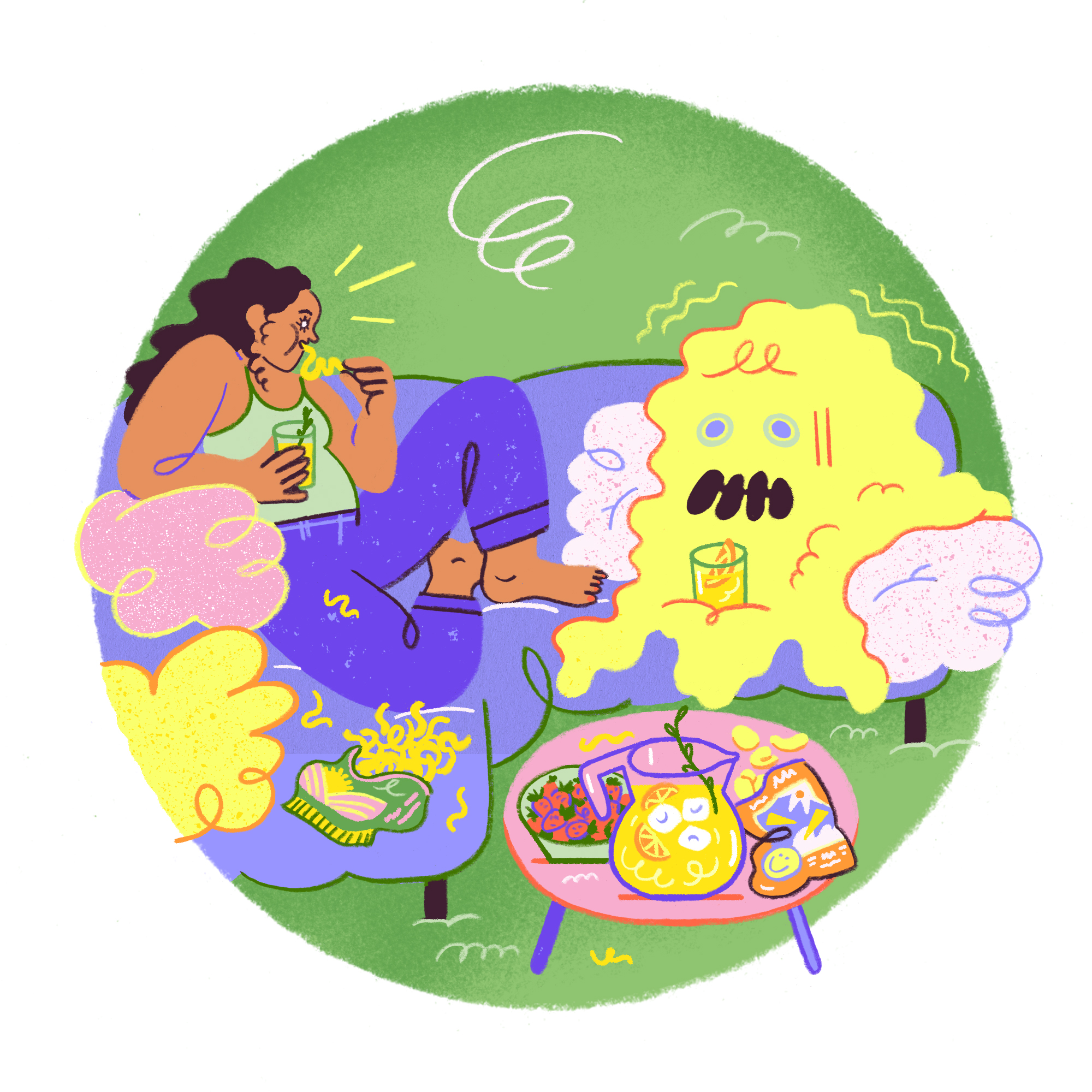
Getting up close with your emotive monsters
Written by
A playful approach to uncomfortable feelings
Victoria Amo-Olea wants to help you identify and overcome your self-limiting beliefs. In a mobile app she has been developing, discouraging emotions take the shape of little monsters. By catching said monsters, users can get better acquainted with the emotions they are experiencing, and thus learn to process them in healthy ways.
What fascinates you about the world of the human mind and our emotions?
I think it is remarkable that our intelligence can go beyond our thoughts and emotions. We can train to become aware of them and we can intentionally change how we deal with them. These are so-called metacognitive skills. For example, research on mindsets by the American psychologist Carol Dweck show that children can change their beliefs about their intelligence by learning that their brains are plastic and that their skills can improve with effort. Mindsets about intelligence have a real impact on people’s lives. Children who believe they are “bad at maths” do not invest much effort in getting better since they don’t believe they can really improve. Each failure makes them feel stupid, instead of exited to learn. I think this work is inspiring and raises the question of what the best way to support belief change is. My hypothesis is that metacognitive skills play a central role in that process.

How did you get the idea of training metacognitive skills with an app?
The idea started during my bachelor’s when I developed an app for learning how to build good habits. As I kept working on this idea, it became apparent to me that the biggest challenge for people isn’t necessarily wanting to do something that is healthy for themselves, but the emotions and inner obstacles that come between. As an example, you might want to improve a bad habit but feel too afraid of failing at it. At that point you may come up with clever excuses to avoid going out of the comfort zone where it is likely to experience emotional pain. This mental world around a goal often goes unacknowledged. I believe that to make progress towards a growth goal, it is crucial to be able to recognise and overcome discouraging thoughts. That is why I started focusing on metacognitive skills.
So, your app helps people train their emotional muscles?
Precisely! The main idea is to use real-life situations as opportunities to practise self-regulation. The app guides people through a set of reflections. First, it will ask you to explain the situation that triggered an emotional response. Then, it will ask about your habits dealing with this emotion, for instance, biting your nails. You can then create an avatar, or little monster, for each emotion, and give it a name you like. This acts as a cognitive diffusion aid to help you gain perspective on the emotion. It adds a layer of humour as well. For example, whenever you feel anxious, you can click on your anxiety avatar in the app. The app provides an emotional regulation meditation that is about acceptance. The idea is that people learn to not only chase after good emotions but also to process uncomfortable emotions in healthy ways.

What’s in it for your research?
The app allows doing experiments with different conditions. I can also change the pre- and post-study periods. We are investigating how the practise of cognitive diffusion, or, realising thoughts as thoughts when they happen, can help people act in ways that they value. We also collect outcome measures such as the intensity of the emotions, how much people struggle with emotions, and the endorsement of beliefs. We want to learn whether and how the discouraging, negative belief decreases during the intervention. Is it because people dropped the emotional struggle or is it because the intensity of the emotion decreased, or both? It helps us to test hypotheses about the underlying mechanisms of behaviour change and the capacity to be introspective.
How did the YES workshop help you to follow your goals?
What I liked about the workshop was to be immersed in a group of people who are interested to learn the same things but come from many different backgrounds. To hear about the other’s ideas and how they could implement them inspired me. I learned a lot about how to be concise in giving a message. The pitch was scary, but it brought me one step further to turn this research into a product that can be of use to somebody else. The thought that I could do something that has an impact on society is very exciting.
You have been working on this project for 10 years. What is the mission that keeps you going?
My passion is the human potential and our capacity for good. I believe training metacognitive skills and healthy emotional habits can have a great positive impact on people’s lives and how they approach life’s challenges. My mission is to create science-based tools that make the training of these skills accessible and fun. I want to enable them to develop healthier emotional lives, connect with their true potential, and invest themselves in being and doing what truly inspires them.
What is next for you?
In the short term, I am very excited to visit Carol Dweck and James Gross at Stanford at the beginning of next year to develop an extended version of the app. After finishing my PhD next year, I want to dive into the startup world. One important step is to apply for funds since I didn’t succeed in my first attempt this year. I will probably try again in Silicon Valley and with EXIST. My dream for the future is to be able to work in both academia and entrepreneurship •






